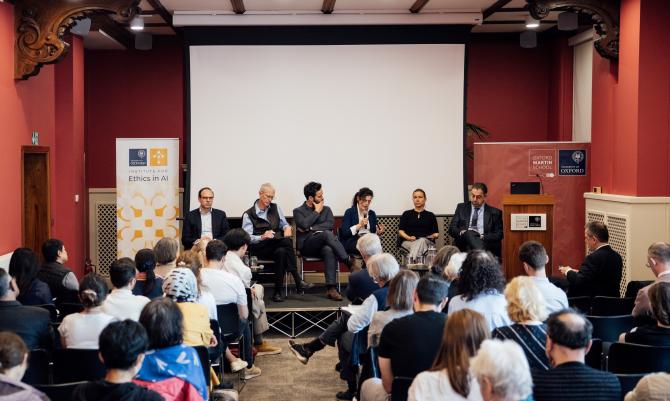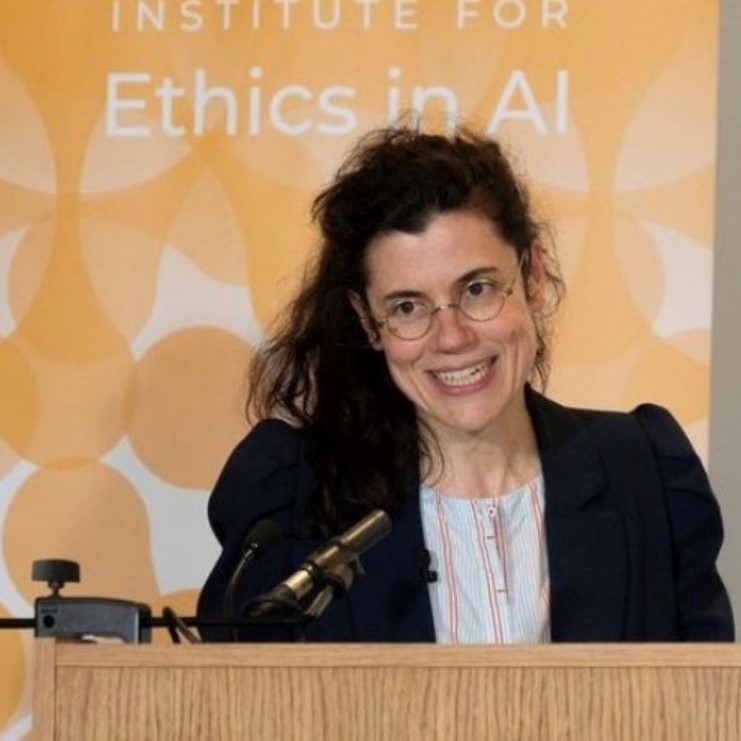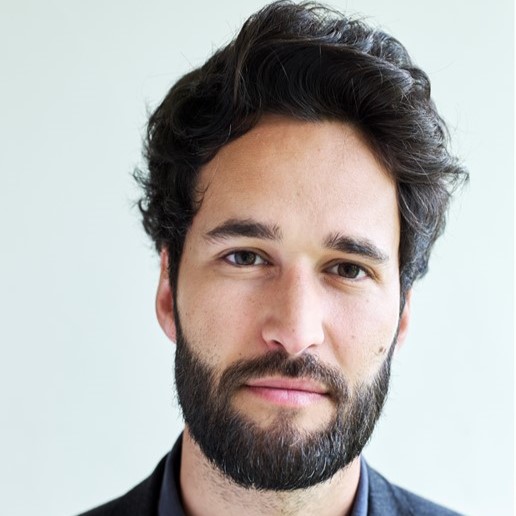
The Institute for Ethics in AI and Oxford Martin School are pleased to announce an exclusive morning event featuring a keynote address by distinguished economist Professor Daron Acemoğlu on May 17, 2024. The event will be hosted at the Oxford Martin School in the lecture theatre, with registration commencing from 10:45.
A recording of this event is now available to watch below or on the Institute's YouTube channel.
Agenda
10.45 – 11.00 - Registration
11.00 – 12.00 - Keynote: Professor Daron Acemoğlu, Institute Professor, MIT
Title: Redesigning AI
Abstract: This talk will argue that the current path of AI is inimical to human flourishing. Nevertheless, different institutional arrangements, ethical underpinnings, and technological vision can lead to better AI. This better AI path will need to overcome the industry's excessive focus on automation, the centralized control of information, challenges in the context of human-AI misalignment, and the disappearing diversity of information among human actors.
Hosted and introduced by Professor John Tasioulas, Director of the Institute for Ethics in AI
12.00 – 12.45 - Panel Discussion and Q&A
Professor Isabelle Ferreras, FNRS Professor in Sociology at the University of Louvain, Visiting Fellow at the Institute for Ethics in AI, Oxford.
Professor Jeremias Adams-Prassl, Professor of Law at Magdalen College, University of Oxford, UK, and Associate Dean (Research), Faculty of Law.
Dr Daniel Susskind, Research Professor in Economics at King's College London and a Senior Research Associate at the Institute for Ethics in AI at Oxford University
Professor Carl Frey, Dieter Schwarz Associate Professor of AI & Work at the Oxford Internet Institute and a Fellow of Mansfield College, University of Oxford
Hosted by Dr Ekaterina Hertog, Associate Professor in AI and Society, joint with the Oxford Internet Institute and in association with Wadham College
12.45 – Finish
The Institute for Ethics in AI will bring together world-leading philosophers and other experts in the humanities with the technical developers and users of AI in academia, business and government. The ethics and governance of AI is an exceptionally vibrant area of research at Oxford and the Institute is an opportunity to take a bold leap forward from this platform.
Every day brings more examples of the ethical challenges posed by AI; from face recognition to voter profiling, brain machine interfaces to weaponised drones, and the ongoing discourse about how AI will impact employment on a global scale. This is urgent and important work that we intend to promote internationally as well as embedding in our own research and teaching here at Oxford.
Professor Daron Acemoğlu is the Sanjaya Lall Visiting Professor, an Institute Professor at MIT and an elected fellow of the National Academy of Sciences, American Philosophical Society, the British Academy of Sciences, the Turkish Academy of Sciences, the American Academy of Arts and Sciences, the Econometric Society, the European Economic Association, and the Society of Labor Economists. He is also a member of the Group of Thirty.
He is the author of six books, including New York Times bestseller Why Nations Fail: Power, Prosperity, and Poverty (joint with James A. Robinson), Introduction to Modern Economic Growth, The Narrow Corridor: States, Societies, and the Fate of Liberty (with James A. Robinson), and Power and Progress: Our Thousand-Year Struggle Over Technology and Prosperity (with Simon Johnson).
His academic work covers a wide range of areas, including political economy, economic development, economic growth, technological change, inequality, labor economics and economics of networks.
Daron Acemoglu has received the inaugural T. W. Shultz Prize from the University of Chicago in 2004, and the inaugural Sherwin Rosen Award for outstanding contribution to labor economics in 2004, Distinguished Science Award from the Turkish Sciences Association in 2006, the John von Neumann Award, Rajk College, Budapest in 2007, the Carnegie Fellowship in 2017, the Jean-Jacques Laffont Prize in 2018, the Global Economy Prize in 2019, and the CME Mathematical and Statistical Research Institute prize in 2021. He was awarded the John Bates Clark Medal in 2005, the Erwin Plein Nemmers Prize in 2012, and the 2016 BBVA Frontiers of Knowledge Award.
He holds Honorary Doctorates from the University of Utrecht, the Bosporus University, University of Athens, Bilkent University, the University of Bath, Ecole Normale Superieure, Saclay Paris, and the London Business School.
Panel Discussion Featuring

Professor Isabelle Ferreras is currently a Visiting Fellow at the Institute for Ethics in AI, and Fellow of Jesus College, Oxford. Isabelle a senior tenured fellow (Maître de recherches) of the Belgian National Science Foundation (F.N.R.S., Brussels). She is professor of sociology at the University of Louvain (Louvain-la-Neuve, Belgium) where she teaches at the Department of Social and Political Sciences, at the Institut des sciences du travail and at the Economics School of Louvain. Isabelle is a tenured researcher of the Louvain CriDIS (Centre de recherches interdisciplinaires Democracy, Institutions, Subjectivity), a Senior research associate of the Center for Labor and a Just economy at Harvard Law School. Ferreras is an elected member of the Royal Academy of Sciences, Humanities and the Arts of Belgium. In 2019, she was elected Director of her Class Technology and Society, and President of the Royal Academy of Belgium for the years 2021 and 2022.

Professor Jeremias Adams-Prassl's research focuses on technology, innovation policy, and the future of work in the European Union and beyond. He is a Fellow of Magdalen College. Jeremias read law at Oxford, Paris, and Harvard Law School, and has held visiting teaching and/or research positions at institutions including Hong Kong University, the Max Planck Institute Hamburg, Renmin Law School Beijing, University College London, the University of Vienna, and Yale Law School.

Dr Daniel Susskind explores the impact of technology, and particularly AI, on work and society. He is a Research Professor in Economics at King’s College London, and a Senior Research Associate at the Institute for Ethics in AI at Oxford University. He is the co-author of the best-selling book, The Future of the Professions (2015) and the author of A World Without Work (2020), described by The New York Times as "required reading for any potential presidential candidate thinking about the economy of the future”. His TED Talk, on the future of work, has been viewed more than 1.6 million times. And his new book, Growth: A Reckoning, will be published in April 2024.
Previously he worked in various roles in the British Government – in the Prime Minister’s Strategy Unit, in the Policy Unit in 10 Downing Street, and in the Cabinet Office. He was a Kennedy Scholar at Harvard University.

Professor Carl Frey is the Dieter Schwarz Associate Professor of AI & Work at the Oxford Internet Institute and a Fellow of Mansfield College, University of Oxford. He is also Director of the Future of Work Programme and Oxford Martin Citi Fellow at the Oxford Martin School. Frey has served as an advisor and consultant to international organisations, think tanks, government, and business, including the G20, the OECD, the European Commission, the United Nations, and several Fortune 500 companies. He is also an op-ed contributor to the Financial Times, Foreign Affairs, Scientific American, and the Wall Street Journal, where he has written on the economics of artificial intelligence, the history of technology, the future of cities, and remote work. His most recent book, The Technology Trap: Capital, Labor, and Power in the Age of Automation, was selected a Financial Times Best Books of the Year in 2019, when it also won Princeton University’s prestigious Richard A. Lester Prize.
Hosted by

Professor John Tasioulas, the inaugural Director for the Institute for Ethics and AI, and Professor of Ethics and Legal Philosophy, Faculty of Philosophy, University of Oxford. He was previously the inaugural Chair of Politics, Philosophy & Law and Director of the Yeoh Tiong Lay Centre for Politics, Philosophy & Law at The Dickson Poon School of Law, Kings College London. Professor Tasioulas has degrees in Law and Philosophy from the University of Melbourne, and a D.Phil in Philosophy from the University of Oxford, where he studied as a Rhodes Scholar. He was previously a Lecturer in Jurisprudence at the University of Glasgow, Reader in Moral and Legal Philosophy at the University of Oxford, where he taught from 1998-2010, and Quain Professor of Jurisprudence at University College London. He has also acted as a consultant on human rights for the World Bank and is a member of the International Advisory Board of the European Parliament's Panel for the Future of Science and Technology (STOA). He has published widely in moral, legal, and political philosophy.

Dr Ekaterina Hertog is the Institute for Ethics in AI's Associate Professor in AI and Society, joint with the Oxford Internet Institute and in association with Wadham College
Ekaterina’s research interests lie at the intersection of digital sociology and family sociology. She leads the ESRC-funded DomesticAI project that scopes new technologies’ potential to free up time now locked into unpaid domestic labour and measures how willing people are to introduce these technologies into their private lives. First research findings offering predictions about the transformative potential of domestic automation have been published in PLOS ONE as The future(s) of unpaid work: How susceptible do experts from different backgrounds think the domestic sphere is to automation and Technological Forecasting and Social Change as The future of unpaid work: Estimating the effects of automation on time spent on housework and care work in Japan and the UK. Looking more broadly at how digital technologies integrate into domestic life she also published a paper in Convergence on ‘It’s not her fault': Trust through anthropomorphism among young adult Amazon Alexa users.
